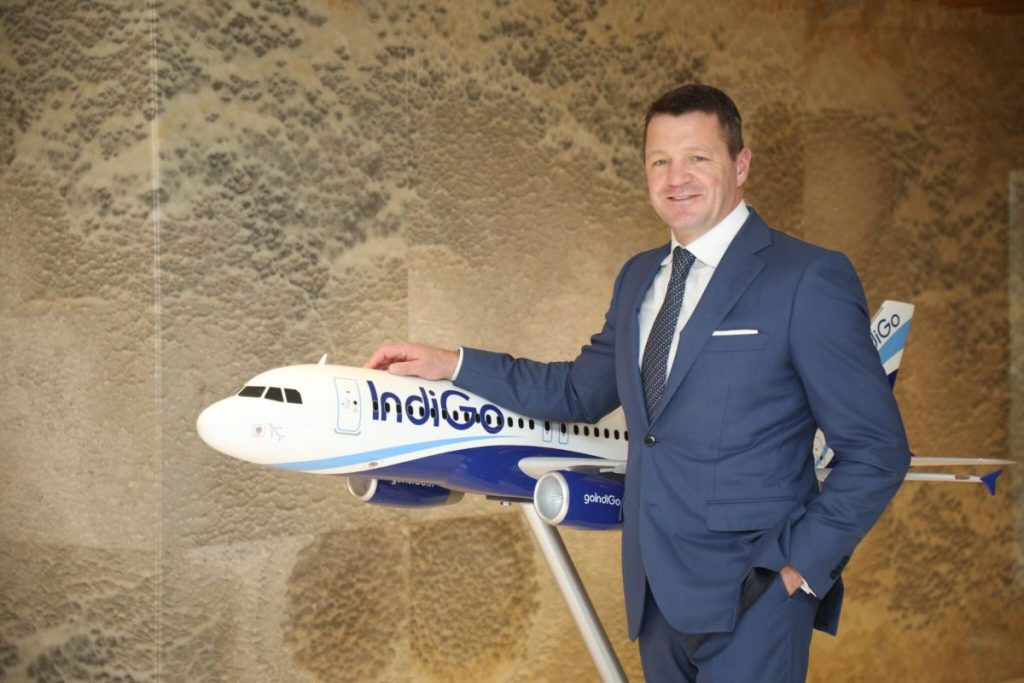Budget carrier IndiGo recently reported a loss of INR 9.9 billion in its most recent quarter, marking a significant reversal after seven consecutive profitable quarters. The airline attributed this loss to rising fuel costs, as well as the grounding of over 70 aircraft due to issues with Pratt & Whitney engines. In addition, the demand for flights has seen a slowdown compared to the high levels experienced last year. Despite these challenges, IndiGo CEO Pieter Elbers remains optimistic about the future growth of the company.
Elbers has outlined a vision for IndiGo to become a global airline by expanding its international network to 40 destinations by the end of this year. The airline’s international capacity share is expected to reach 30%, and it plans to introduce a business class offering on select routes. In addition, IndiGo has launched its “Blue Chip” loyalty program as part of its efforts to enhance its product offerings. These initiatives are aimed at positioning IndiGo as a competitive player in the global aviation market.
While IndiGo is preparing for significant growth in the coming years, it faces challenges related to infrastructure and competition. The airline needs to keep up with the necessary infrastructure both on the ground and in the air to support its expansion plans. Infrastructure constraints at major hub locations such as Delhi and Mumbai could impact the operational performance of airlines, including IndiGo. As a result, the airline is looking to partner with the upcoming Noida International Airport near Delhi to address these challenges.
In addition to infrastructure issues, IndiGo also anticipates intense competition in the market. Global airlines are vying for a share of the growing Indian aviation market, leading to increased competition on international routes. Carriers from the Middle East, Singapore, Indonesia, and Malaysia are seeking additional flying rights to operate more flights to and from India. This added competition poses a challenge for Indian airlines like IndiGo as they seek to maintain their market share and profitability amid this competitive landscape.
Despite the challenges it faces, IndiGo remains focused on its long-term growth strategy. The airline is determined to overcome its recent loss and resume its profitable trajectory. By expanding its international network, enhancing its product offerings, and addressing infrastructure constraints, IndiGo aims to position itself as a leading player in the global aviation industry. With a clear vision for the future and a commitment to success, IndiGo is well-positioned to navigate the challenges ahead and capitalize on the opportunities in India’s rapidly growing aviation sector.


